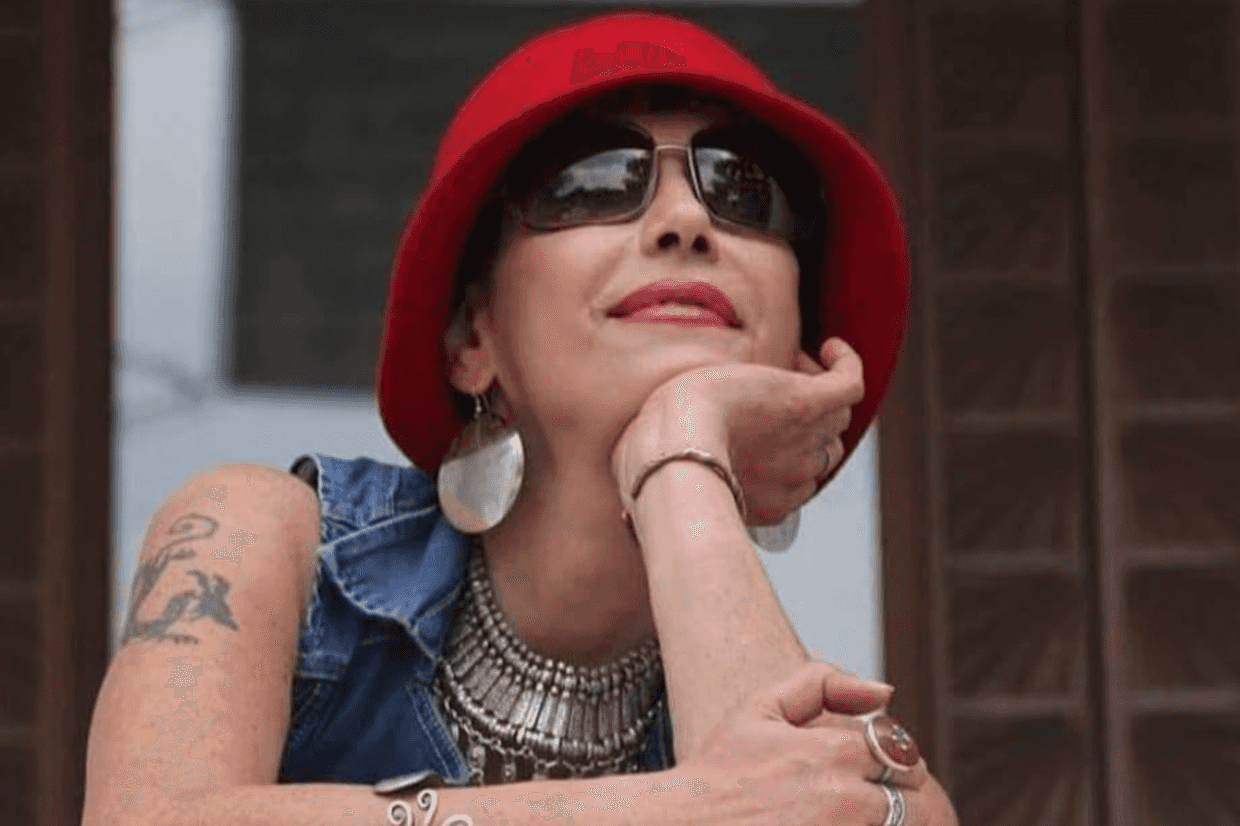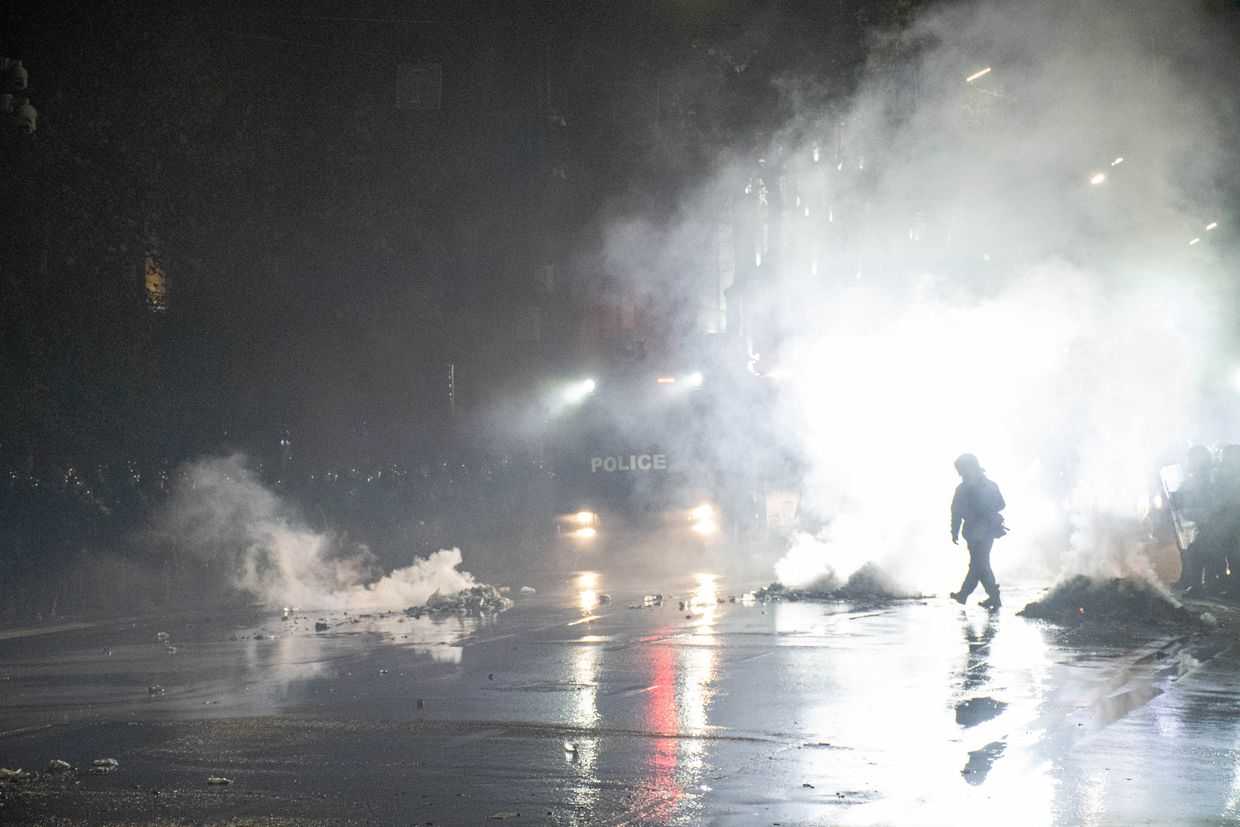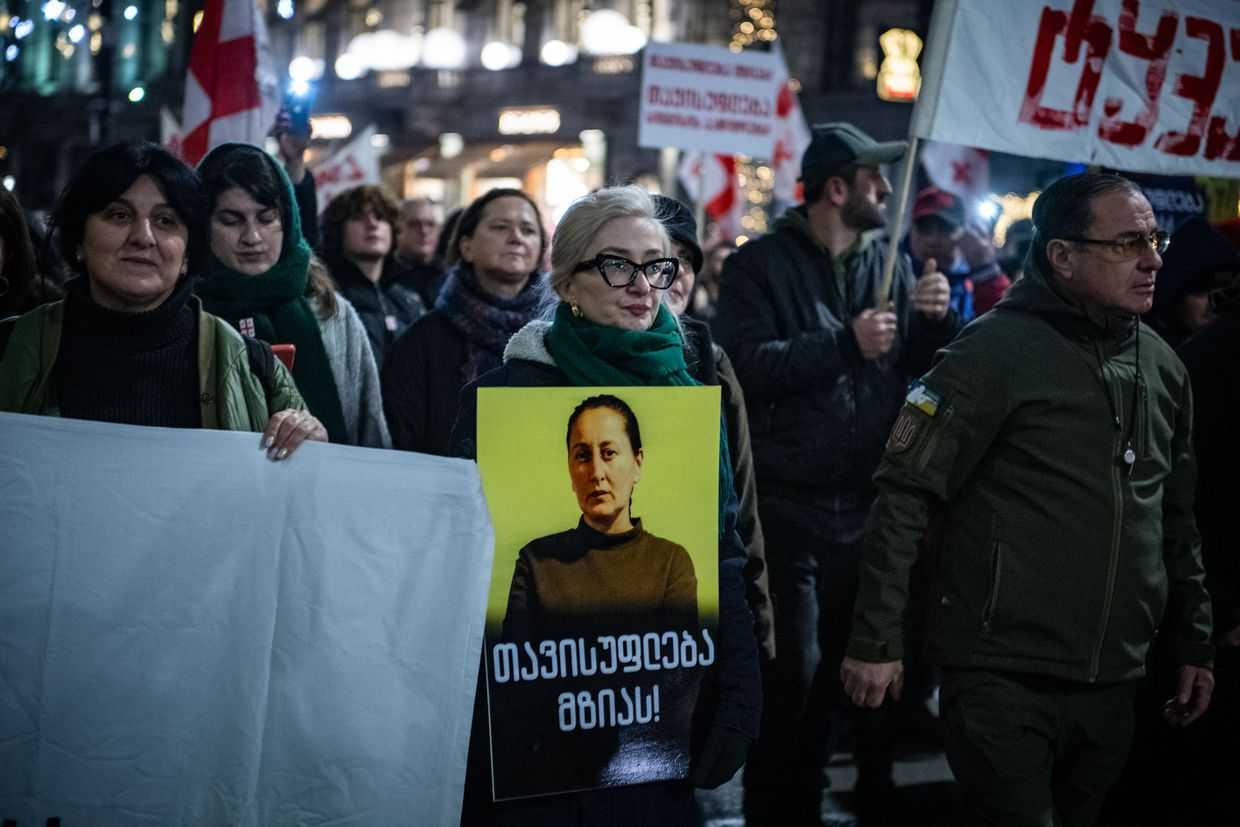Georgian Government to seize overdue taxes from TV companies Kavkasia, Pirveli, and Rustavi 2

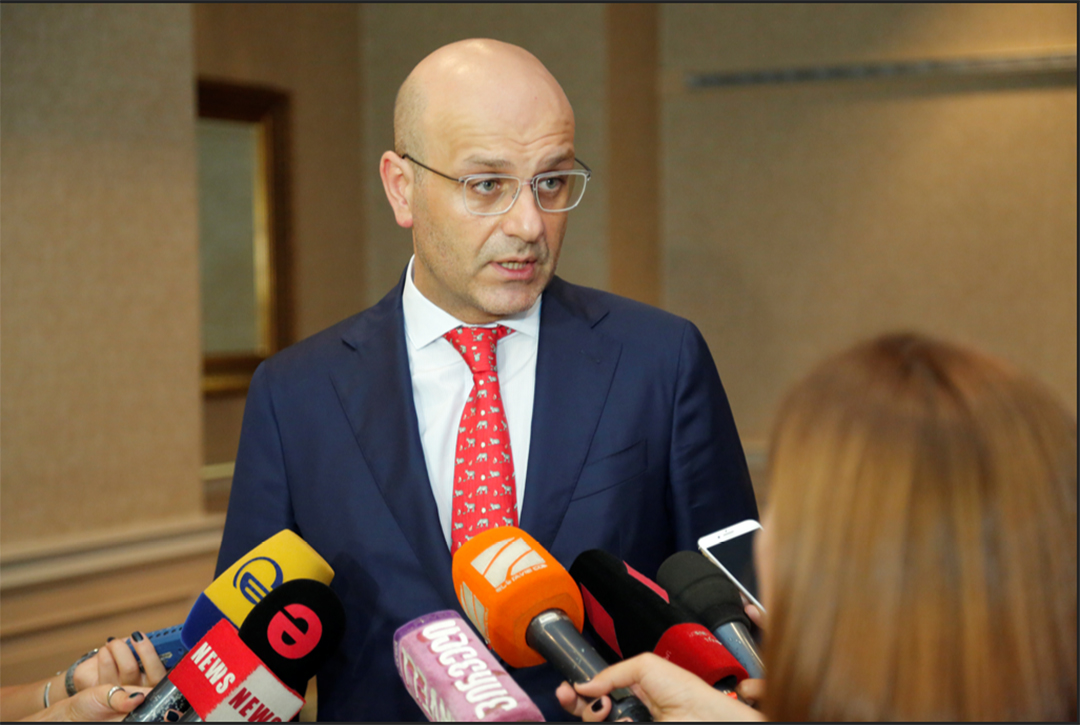
Georgia’s finance ministry has notified broadcasters Kavkasia, Pirveli, and Rustavi 2 and their banks that they will begin seizing overdue taxes from the TV companies. At least one regional broadcaster has reportedly received the same notice.
On 25 December, the Finance Ministry issued an encashment order against the three Tbilisi-based broadcasters.
The Revenu Service declined to confirm the order for privacy reasons however Kavkasia, Pirveli, and Rustavi 2 all confirmed the reports.
Natia Kuprashvili, head of the Journalism Resource Centre, said that one other unnamed regional broadcaster was also hit with similar measures.
On 23 December, the Finance Ministry gave the companies a one-day deadline to cover the principal of debts accumulated since October.
‘Thus came an encashment notice upon our accounts! Thank you, Government’, TV Kavkasia’s Director Nino Jangirashvili wrote on Facebook on Thursday.
‘In practice, it means stopping the television station because the organisation won’t be able to make any transfers’, she said.
Jangirashvili called the measures against Rustavi 2 an ‘alibi’ for the government, to cover-up what she called politically biased decisions against two critical TV channels.
TV Pirveli’s director, Inga Grigolia, wrote a similar condemnation on Facebook on Thursday evening.
‘In a time of injustice like this, [our] energy becomes hundreds of times bigger. We’ll work even harder, so thank you for motivating us’, she said.
Speaking to Pirveli on 25 December, Parliamentary Speaker Archil Talakvadze appeared to distance himself from his government’s decision, calling on the finance ministry to consider the companies’ financial standings and offer them ‘just’ payment plans.
Finance Minister Vano Machavariani denied accusations from the companies and others that the decision was political. He said it was a ‘preventive measure’ to stop the companies beginning ‘another cycle’ of accumulating debts.
Mariam Gogosashvili, a lawyer at rights group the Georgian Young Lawyers’ Association (GYLA), told OC Media that the government must ensure equal treatment of all TV companies. She added that it ‘certainly doesn’t mean’ the companies had not been paying taxes at all.
On 26 December, anti-government groups Shame and Shetsvale (change!) organised demonstrations in front of the offices of Pirveli and Kavkasia, calling the government’s decision ‘pressure on critical media’.
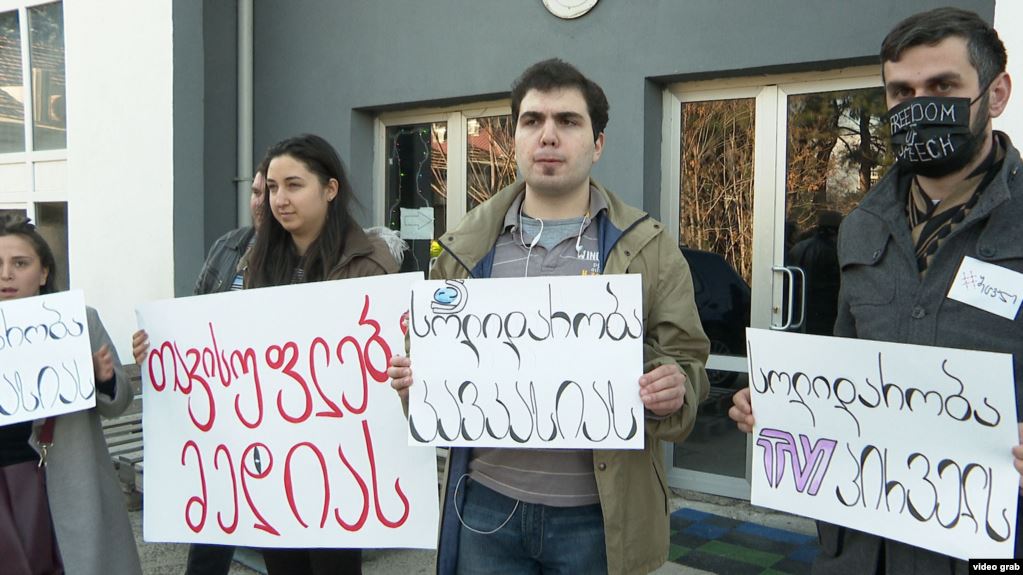
Several members of opposition parties European Georgia, the United National Movement, and Girchi were also among the crowd.
Preferential treatment
In August, Finance Minister Ivane Machavariani identified Imedi, Rustavi 2 and Maestro as the TV companies with the largest outstanding tax debts, urging them to pay what was owed.
He added that he was open for flexible repayment plans for the companies.
‘They would find it difficult to cover their debts altogether which could put their existence in question. We don’t want to do that’, Machavariani stated in August.
None of those three companies is among the most critical towards the ruling Georgian Dream party in terms of their editorial policy.
[Read more about TV channels Imedi in the CRRC’s analysis on OC Media: Polarisation in Georgia’s media landscape]
Details about the negotiations between the Finance Ministry and the three companies have not been made public since August.
Kavkasia Director Nino Jangirashvili announced at the time that the company would ‘boycott’ taxes because the government was applying an unjust and selective approach to taxing TV stations, giving preferential treatment to broadcasters loyal to them with long-term payment plans.
Jangirashvili insisted several times that Kavkasia and other smaller and struggling media companies regularly covered their dues, and that she was ‘not going to pay a tetri’ on the background of ‘injustice’.
Pirveli recognised their tax obligations and confirmed the company was willing to pay but claimed the government had turned down a request for a month-long extension.
Paata Salia, Director of Rustavi 2, said the government had made the ‘wrong decision’ in issuing the order against them as they were only a ‘little late’ to pay their taxes.
Salia confirmed that the company owed the government ₾27 million ($9.5 million) and said they planned to pay according to a restructuring plan they had agreed with the authorities.
The Rustavi 2 director was critical of the government for ‘letting the previous management of Rustavi 2’ avoid taxes and accumulate millions in debt over the years.
[Read more about changes in Rustavi 2 ownership on OC Media: Georgia’s Rustavi 2 TV transferred to previous owner after ECHR ruling]



